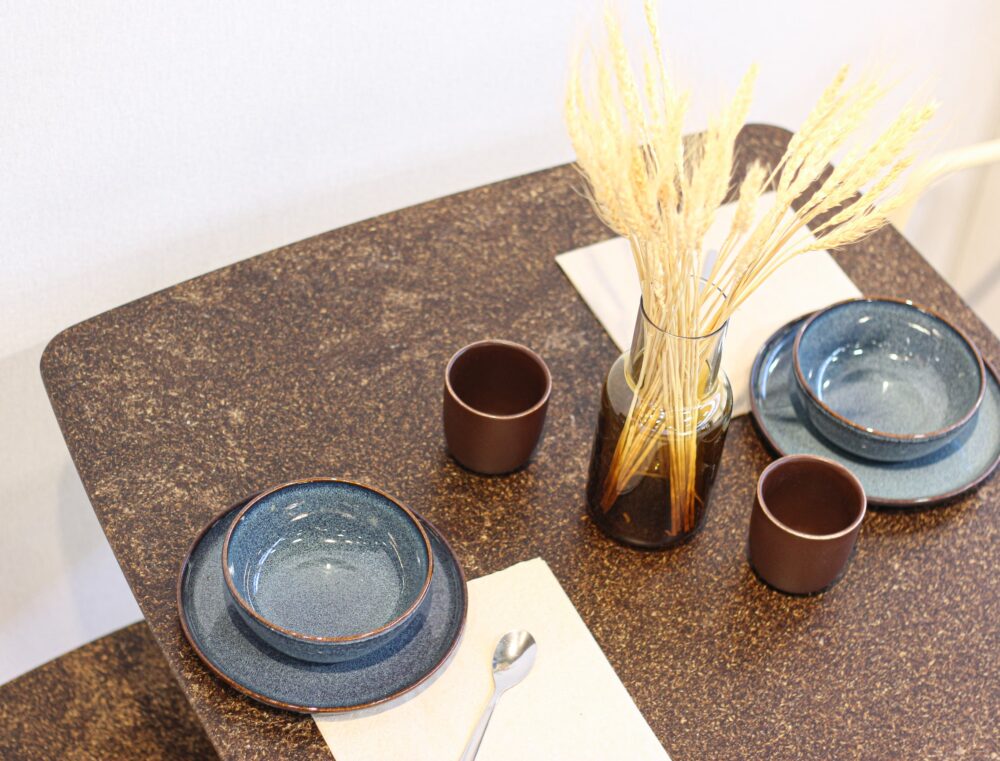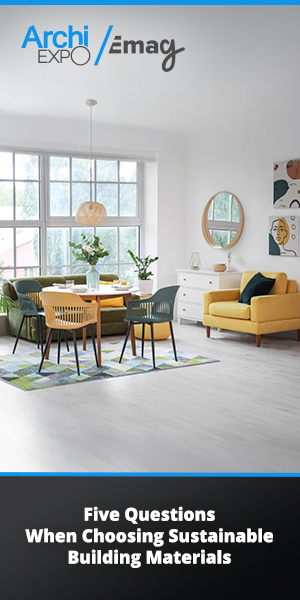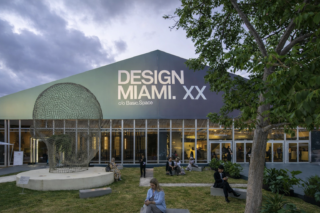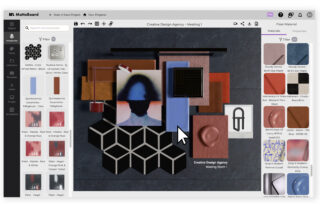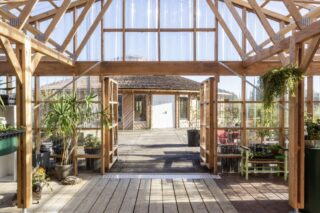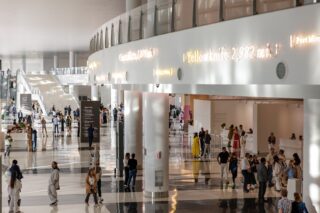Instead Mobilier is turning brewer’s waste into eco-friendly furniture, tackling both the problem of beer industry byproducts and the environmental cost of “fast furniture.”
Imagine sipping a pint of lager at your local bar, then weeks later sitting on that same beer—transformed into a chair. This is the unusual promise of Instead Mobilier, a French startup that calls itself a “furniture brewery.” Founded in 2020 by cabinetmaker and beer enthusiast Franck Grossel and marketing professional Christophe Pilcher, the Nantes-based company is tackling two urgent environmental problems at once: the disposal of beer industry byproducts and the destructive cycle of “fast furniture.”
“Our idea is simple but powerful,” explains Christophe Pilcher. “We take brewer’s spent grain—something no one was really using—and turn it into beautiful, durable furniture. The idea is to literally sit on the beer you’re drinking.”
WATCH our video interview with Pilcher during the September edition of Maison&Objet Paris.
The Spent Grain Problem: More Than Just Leftovers
Brewer’s spent grain (BSG) is the cereal residue left after beer brewing. It’s mostly husks and other solid matter, and it comes out of breweries wet—up to 98% humidity. France alone produces over 600,000 tonnes of this material each year, tied to more than 2 billion liters of beer consumed.
Traditionally, spent grain is given to farmers for animal feed or composting. While that may sound sustainable, the reality is more complex. Because of its high moisture, BSG spoils rapidly, generating methane emissions if left unused or improperly stored. Transportation is costly due to its weight, and not all farmers can absorb the huge volumes. According to a study by the European Brewery Convention, the disposal of wet spent grains remains a “logistical and environmental challenge” for brewers of all sizes. Instead Mobilier recognized this as an opportunity.
“Brewer’s spent grain wasn’t used in any high-value way,” says Pilcher. “We thought, okay—how can we make it into a material? How can we turn it into furniture that goes back into the very places where beer is consumed—bars, restaurants, hotels?”
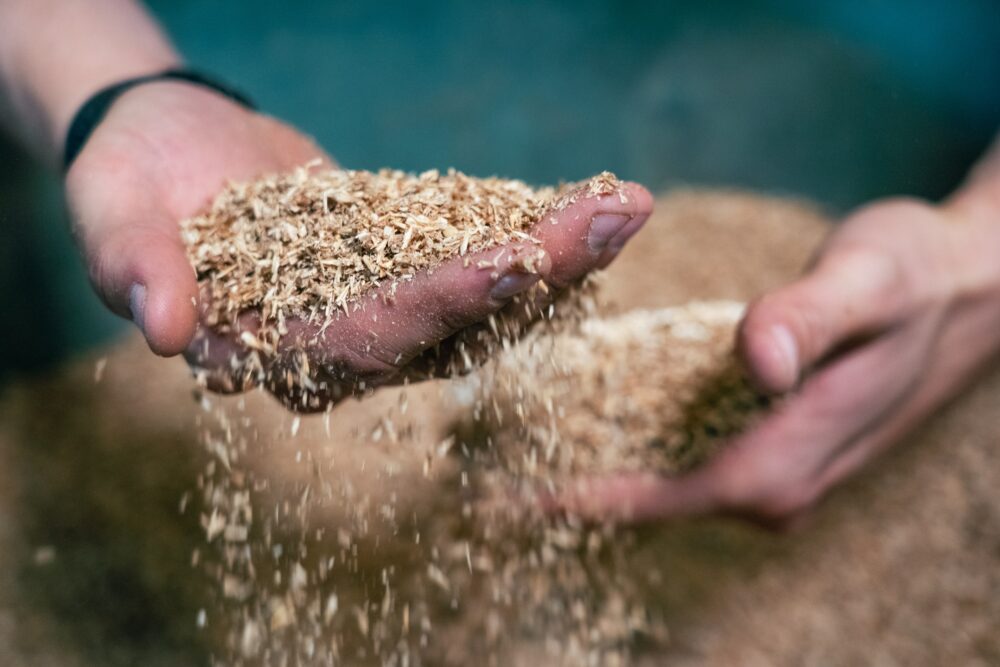
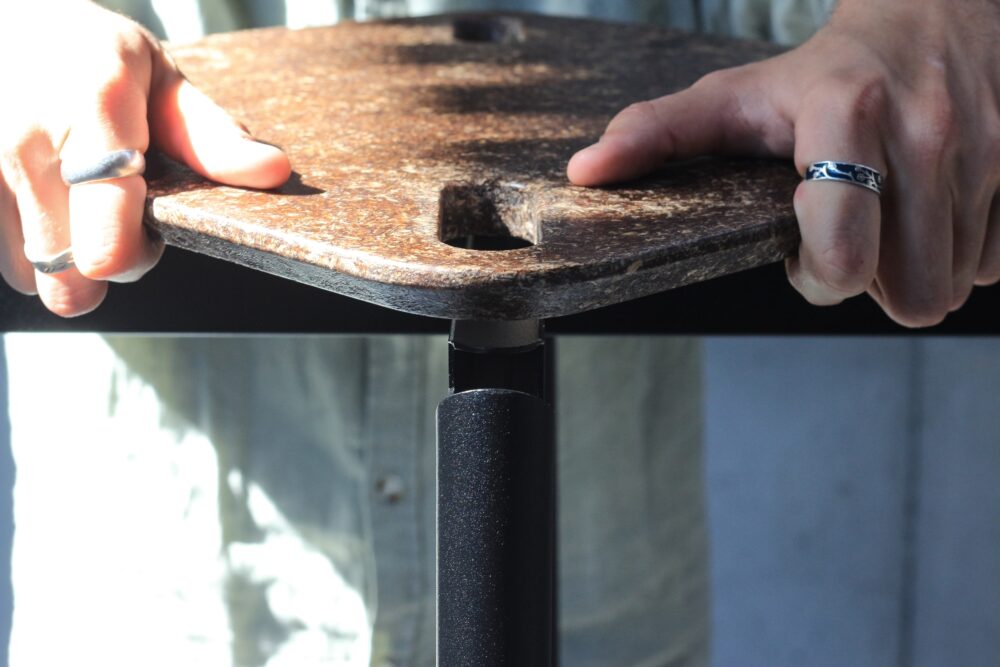
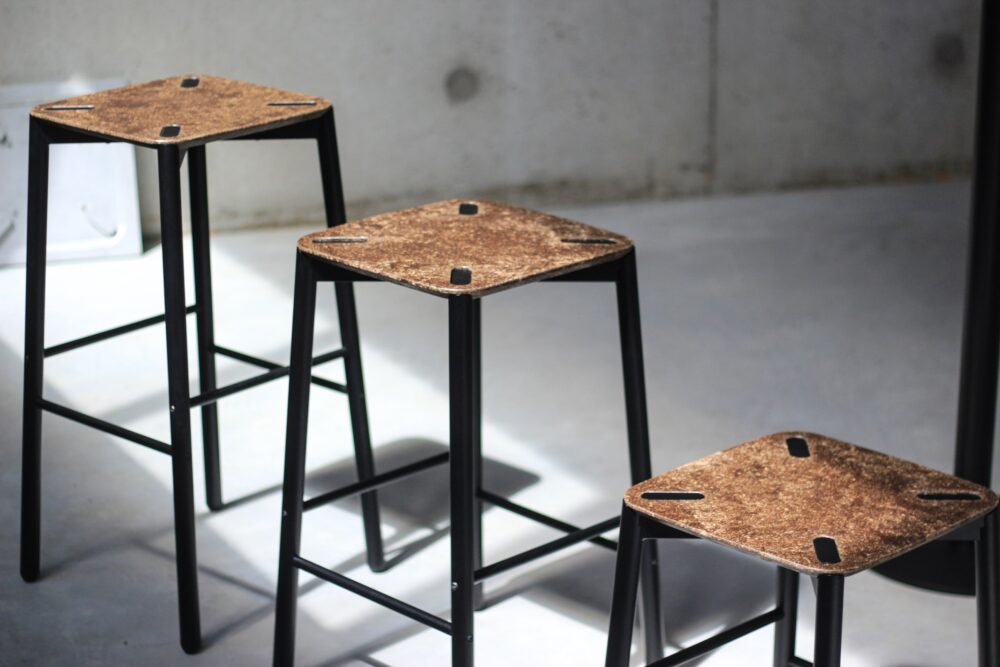
Balt®: An Eco-Material with Style
After three years of R\&D, Instead created Balt®, short for “malt wood.” The material is made by combining dried spent grain with another overlooked waste: single-use bio-based plastic containers made of PLA (polylactic acid), derived from corn.
“There isn’t any recycling chain for PLA in France today,” explains Pilcher. “So we mix it with the grains, heat them, and press them into molds.”
The result is a robust material that is 100% bio-sourced and recycled. It is waterproof, thermoformable, and visually striking—each surface resembles organic marble, with patterns created by the brewing process. Instead offers natural shades inspired by beer itself: dark beer, lager, white beer, and red beer. Pigments can also be added to create bespoke hues.
“We’ve made blue and white surfaces for a customer who wanted something unique,” Pilcher says.
Balt® is used across the company’s product line, from stools and coffee tables to bistro and standing tables. Custom projects include wall paneling, coverings, and decorative objects.
“What makes Balt special is that it’s not just sustainable—it’s beautiful,” Pilcher notes. “It’s a material that tells a story.”
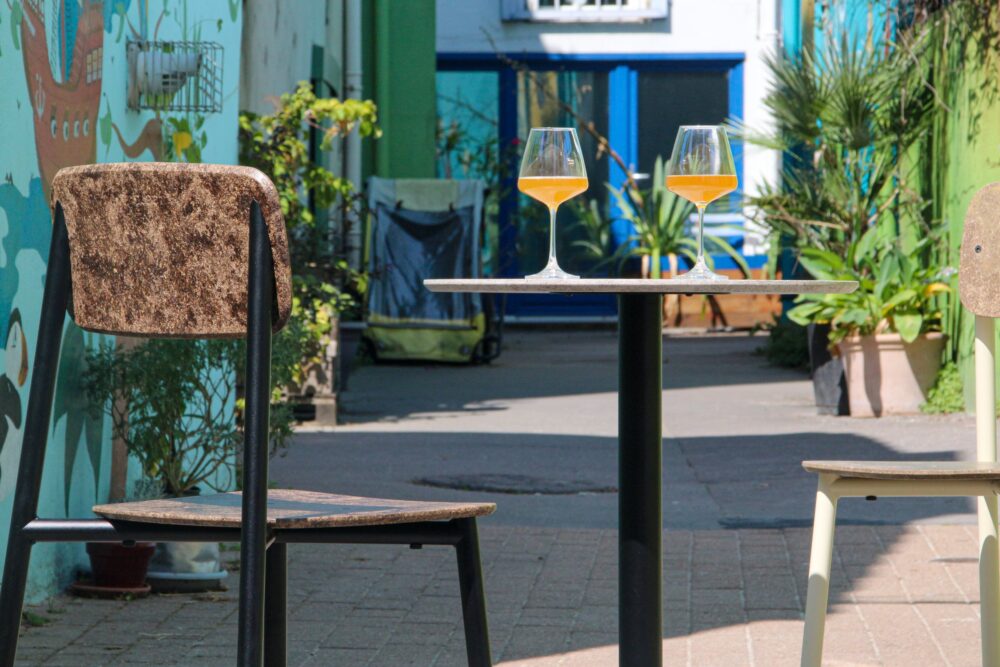
Fighting Fast Furniture with Local Recycling
The rise of “fast furniture” mirrors the fast fashion crisis. Between 2017 and 2022, the number of furniture items placed on the French market almost doubled. Over half of all furniture purchased in France is imported, much of it from Asia. The environmental footprint of a chair imported from China is nearly double that of one produced domestically.
Instead Mobilier positions itself as the antithesis of this cycle. All stages of production are carried out locally, within a two-hour radius of Nantes. Spent grains are collected from nearby breweries and dried using industrial waste heat, eliminating the need for primary energy. Balt® is then pressed into molds, while steel bases are sourced just 20 minutes away, made with 30% recycled content.
“Because everything is made locally, we can show our customers the carbon savings compared to furniture imported from Asia or made with virgin materials,” says Pilcher. “It’s not just theory—we provide a lifecycle analysis for every product.”
Instead’s products are independently certified by Eco Impact, a consultancy that assesses sustainability across 71 criteria. The results are impressive: on average, Instead’s furniture is made from 72% recycled materials and has 47% less impact than similar products on the market.
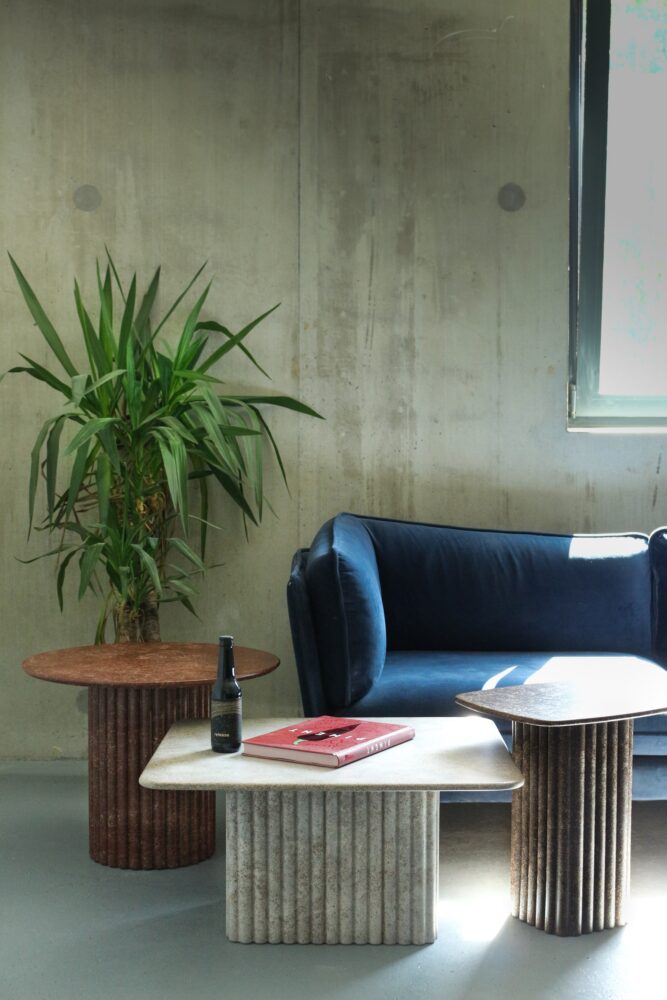
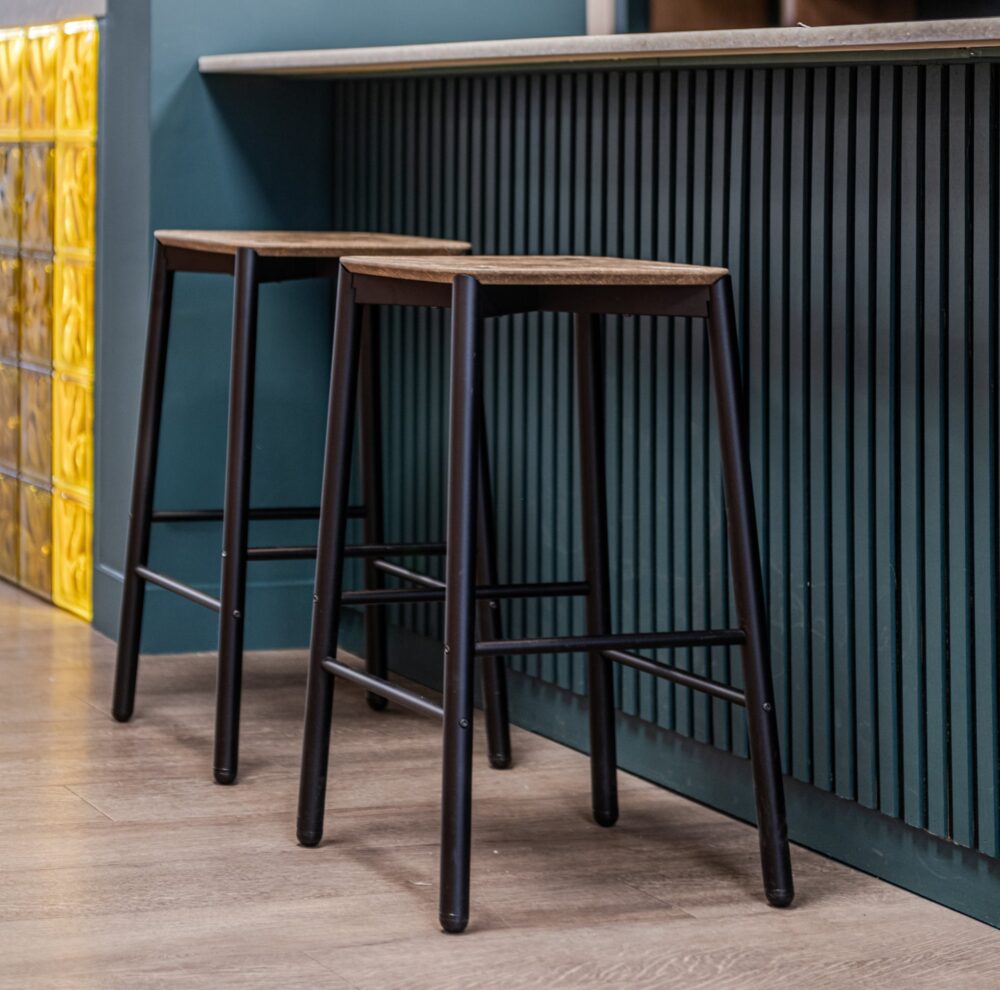
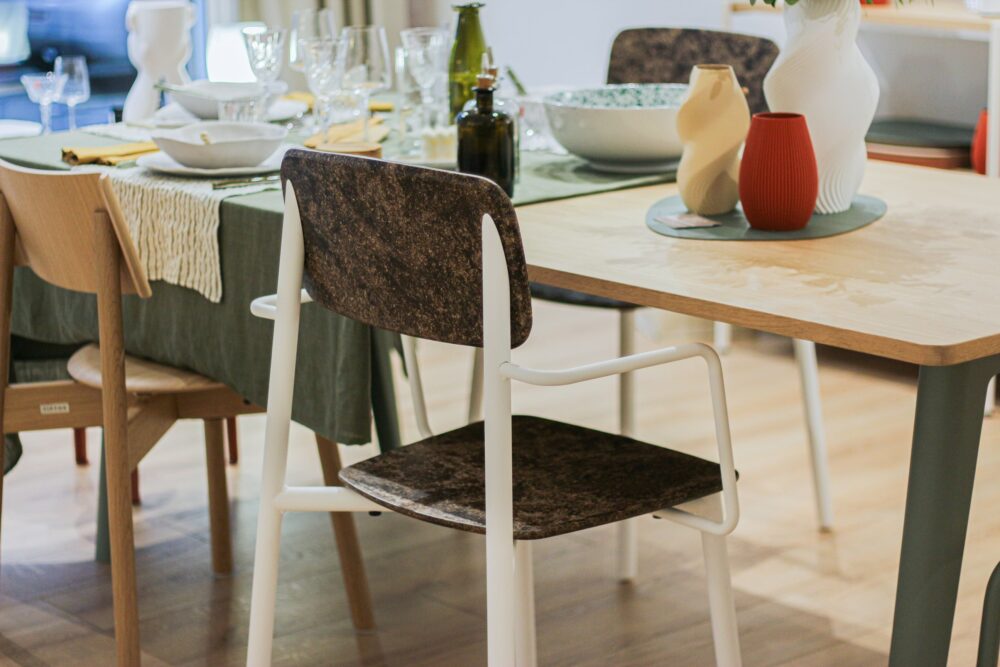
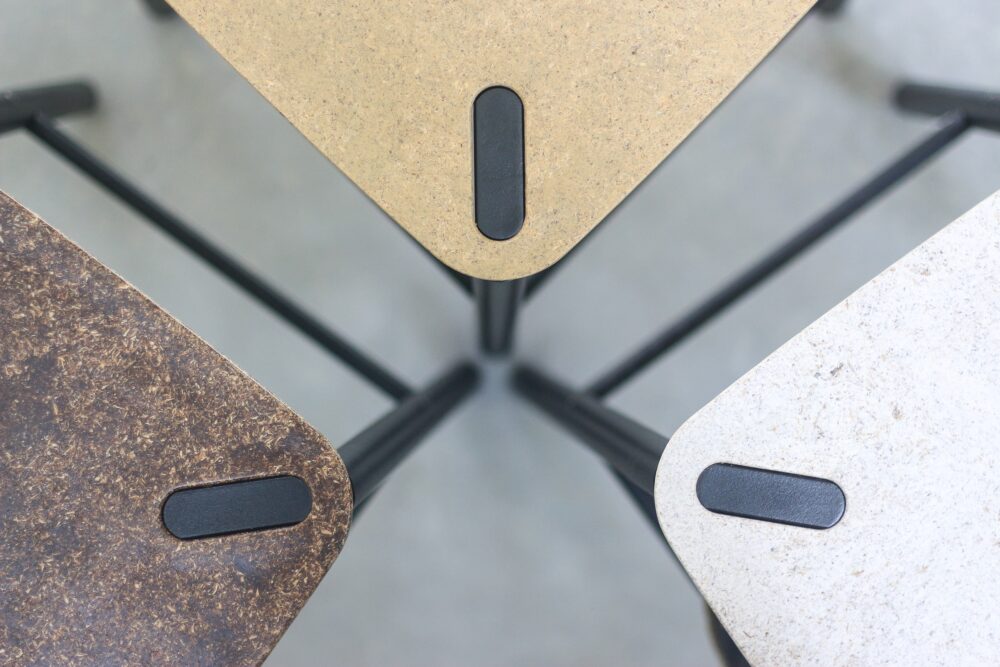
The Human Side: Brewing a Future for Furniture
The company’s roots reflect the personalities of its founders. Grossel, a woodworker passionate about beer and the environment, first had the idea of transforming spent grains into furniture. Pilcher, looking for a new impact-driven project, joined him when the venture relocated to Nantes in 2022. They call their shared workshop the world’s first “furniture brewery.” The team now numbers six, but their mission is larger than the sum of its parts.
The founders acknowledge their responsibility toward the planet and future generations. It’s why they reject planned obsolescence and have created long-lasting, repairable products, promoting a circular economy. For Pilcher, the vision is clear:
“Furniture shouldn’t be disposable. It should have meaning, durability, and beauty. With Balt, we’re proving that waste can be the foundation of something valuable. And we’re doing it in a way that lowers emissions, supports local industry, and inspires change.”
As consumers increasingly question the environmental cost of what they buy, Instead Mobilier offers a hopeful model—raising a glass not just to beer, but to a future where yesterday’s pint becomes tomorrow’s table.
Video: In French. Set the captions to the language of your choosing.
Sources
European Brewery Convention: “Spent Grains Utilization and Challenges”
Zero Waste France – “Fast déco au placard” (2024)
Arte Documentary “IKEA, le seigneur des forêts” (2023)
L’Ameublement Français – furniture industry studies
